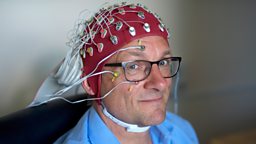How can I avoid getting dementia?
In order to find out the health questions you really wanted an answer to, we commissioned a poll of 2,000 people. The results told us that almost half of those surveyed were keen to know ‘How can I avoid dementia?’ (49%, according to ComRes poll conducted online 22-23rd April 2015 with 2,051 GB respondents 18+)

Dementia is a leading cause of death in the UK, and with an aging population, the numbers of those living with dementia is only growing. There are over 800,000 people in the UK with dementia, of which approximately 40,000 are young, meaning under the age of 65. By 2025 is has been estimated that there will be 1 million people living with some form of the condition. Two thirds of people with dementia in the UK are female, and it causes 60,000 deaths per year. However, far from it being completely beyond our control, there are several lifestyle factors that can contribute to our risk or have a protective benefit. The time at which we should begin to introduce or modify these aspects is ultimately important.
To tackle the issue, Michael Mosley visited the European Prevention of Alzheimer’s Dementia (EPAD) conference in Edinburgh. He spoke to its chair, Professor Craig Ritchie, to find out the truth, and find out the truth. Professor Ritchie is Professor of the Psychiatry of Ageing at the University of Edinburgh and leads on major prevention research initiatives both in the UK and Europe.
So what can we do to reduce our risk of dementia? What should we do more of, and is there anything we should really avoid?
As Professor Ritchie says:
“I think the two major risk factors are age for which we can do nothing about and number two is family history and of course again we can't do anything about that either, we can't choose our parents. So what we've been doing for the last ten or twenty years is to work out what we can do when we're in our fifties or our sixties that will just decrease that chance of us developing dementia later on.”
So, what is his advice?
Diabetes
There is a clear link between type 2 diabetes and dementia – in fact having untreated diabetes increases your risk of dementia 3-fold. If you already have diabetes, making sure it is carefully managed will lessen the likelihood of cognitive decline.
As Prof Ritchie says: “The elevated levels of insulin that one gets in type II diabetes may have a direct biological effect on disease processes in the brain. So we know for instance that high levels of insulin in the brain are broken down by an enzyme called insulin degrading enzyme. That enzyme also, if you like in a simple way is what breaks down amyloid in the plaque [structures in the brain that cause dementia] so you could argue that having high levels of insulin in the brain distracts the plaque busting enzyme towards getting rid of the insulin as opposed to managing the plaque.”
Exercise
The brain needs oxygen to function well, and so a good cardiovascular system is important. That means doing some aerobic exercise. In midlife especially, moderate exercise has been highlighted as having a potentially significant impact in reducing your risk. And smoking is therefore also a big risk factor for dementia – give it up to help save your brain!
Diet
There’s always a lot in the media about diet and dementia. In fact, the evidence is fairly limited, but a Mediterranean diet is likely to be the best for your brain – rich in fibre, fish (with their omega 3 oils) and possibly with the odd cup of coffee and glass of red wine.
However, if you remember the concerns about aluminium pans in the past, then you can forget about that – it’s not thought that they could be causing a big risk.
Depression
Depression is actually a high risk factor for dementia, so if you suffer from it, then the advice is to get it treated.
Taking up a new hobby
People often think that doing puzzles or brain training is good – but the key is that whatever you do has to be new. So if you’ve always done crossword puzzles, then carrying on with them is not going to do you much good. What you need is to take up new, brain-stimulating hobbies as you get older. And if you can combine those with a social aspect, such as joining a club, then that’s even better (this is why hearing loss can be a risk factor for dementia – it can be socially isolating, so if you can, use a hearing aid!).
A new language, a new instrument, a new hobby and new friends — every 5-10 years!
And finally, when should we begin making these changes?
Professor Ritchie explains that we should begin to consider the period of our forties to fifties as a good place to look at moderating risk. However, if you haven’t considered changing or taking up these habits in midlife, it is still important and beneficial to acknowledge these in later life too. Whatever age you are, all of these could have the potential to help safeguard your brain as well as boosting your overall health and wellbeing.

















































